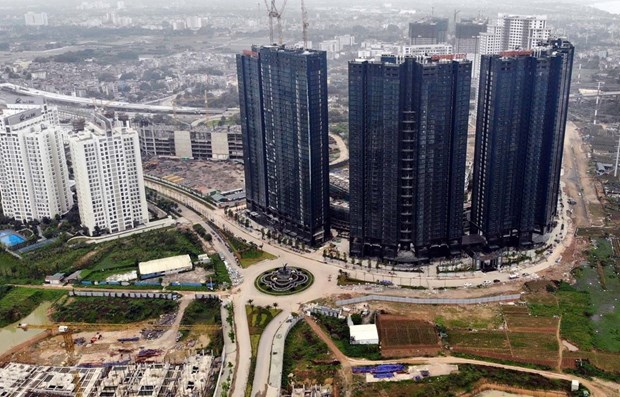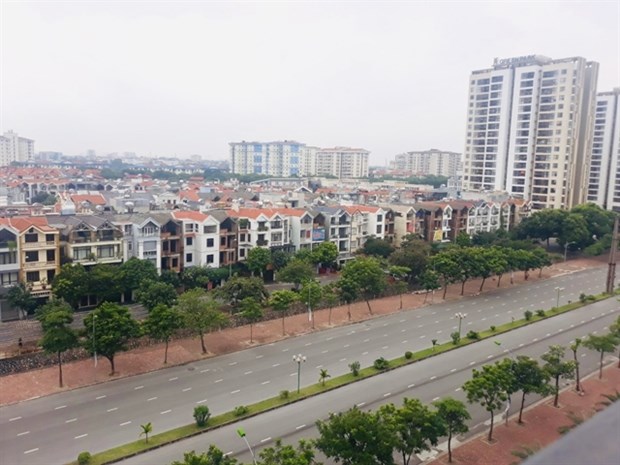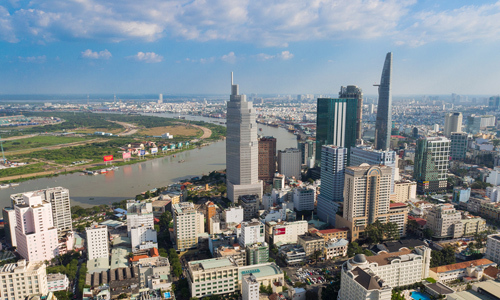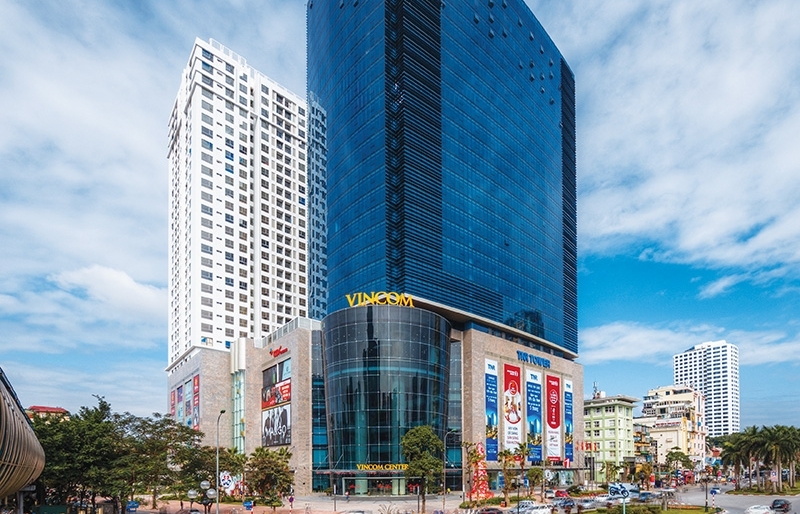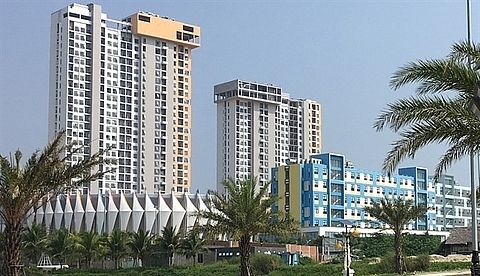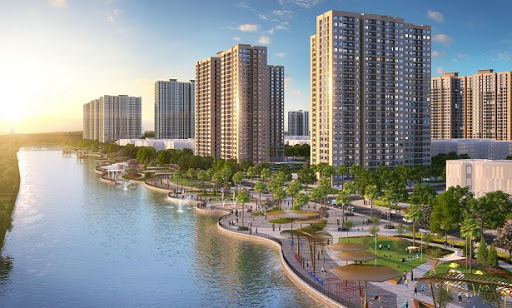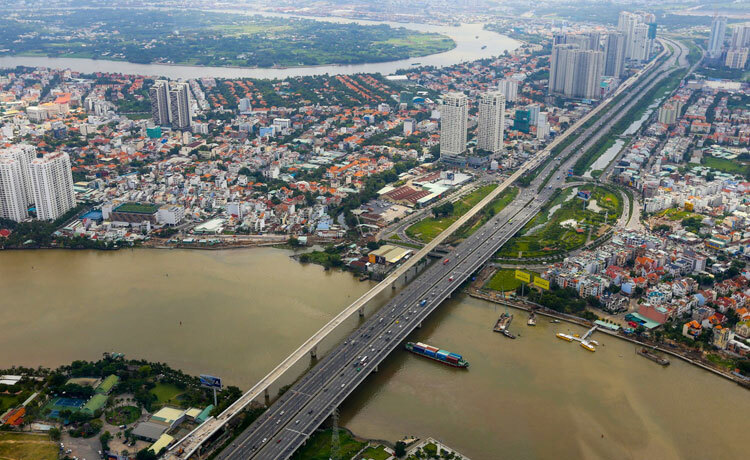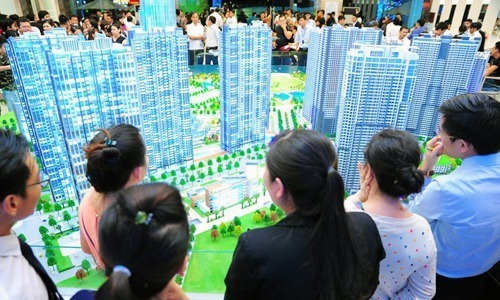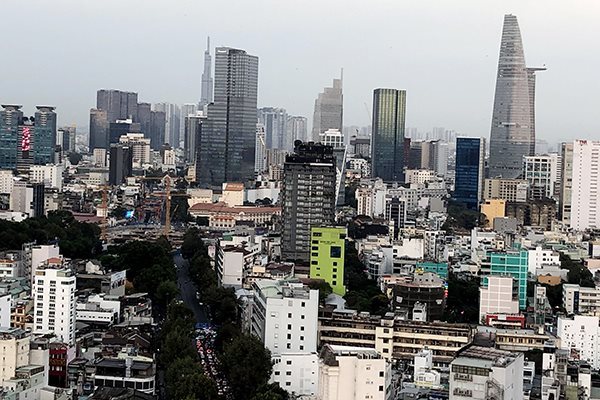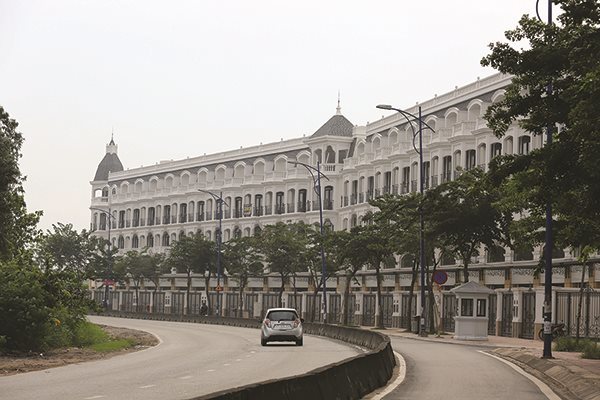- © Copyright of Vietnamnet Global.
- Tel: 024 3772 7988 Fax: (024) 37722734
- Email: evnn@vietnamnet.vn
real estate market
Update news real estate market
Scenarios charted to recover frozen HCM City real estate market
 Experts and businesses in Ho Chi Minh City’s real estate sector have mapped out recovery scenarios after the COVID-19 pandemic passes, with the local property market having experienced a marked slowdown.
Experts and businesses in Ho Chi Minh City’s real estate sector have mapped out recovery scenarios after the COVID-19 pandemic passes, with the local property market having experienced a marked slowdown.
Real estate to remain good investment after Covid-19 ends
 Economists believe that real estate will remain a safe shelter for investors, and will still bring attractive profits in the post-Covid-19 period.
Economists believe that real estate will remain a safe shelter for investors, and will still bring attractive profits in the post-Covid-19 period.
Housing prices unlikely to drop despite pandemic: experts
 Experts believe that the real estate market is unlikely to fall into a crisis and housing prices will remain stable because market demand remained high while supply is limited.
Experts believe that the real estate market is unlikely to fall into a crisis and housing prices will remain stable because market demand remained high while supply is limited.
Who deserves the most help during the Covid-19 crisis?
 National Assembly deputies say if the government gives financial support to real estate firms and private schools, it will only be saving rich people.
National Assembly deputies say if the government gives financial support to real estate firms and private schools, it will only be saving rich people.
Real estate: oversupply or undersupply?
 The HCM City Real Estate Association (HOREA) says there has been a sharp increase in inventory and has urged loosening of legal procedures to hasten completion of projects.
The HCM City Real Estate Association (HOREA) says there has been a sharp increase in inventory and has urged loosening of legal procedures to hasten completion of projects.
Association calls for consistent tax incentives for social housing developers
 Tax incentives for developers of social housing projects for lease should be made clear and consistent to encourage private investment in the segment, according to the HCM City Real Estate Association.
Tax incentives for developers of social housing projects for lease should be made clear and consistent to encourage private investment in the segment, according to the HCM City Real Estate Association.
HCM City property developers offer more products
 The HCM City real estate market provides more housing projects and subsidises rentals to boost the market amid the COVID-19 pandemic.
The HCM City real estate market provides more housing projects and subsidises rentals to boost the market amid the COVID-19 pandemic.
Office-for-lease market welcomes new players
 Businesses that previously focused on developing housing projects have begun to lease offices
Businesses that previously focused on developing housing projects have begun to lease offices
Encouraging signs in real estate arena
 Despite the COVID-19 outbreak piling pressure on the toughest segments of the real estate market in hospitality, retail, and industrial property, positive signs have also been unearthed.
Despite the COVID-19 outbreak piling pressure on the toughest segments of the real estate market in hospitality, retail, and industrial property, positive signs have also been unearthed.
VN real estate firms struggle amid Covid-19 epidemic
 The coronavirus epidemic has caused a shock to global tourism, seriously affecting hotels and resorts.
The coronavirus epidemic has caused a shock to global tourism, seriously affecting hotels and resorts.
Ownership certificates for condotels could solve market issues: experts
 Experts believe the State's issuance of ownership certificates for non-residential real estate projects will solve existing difficulties in Vietnam’s real estate market.
Experts believe the State's issuance of ownership certificates for non-residential real estate projects will solve existing difficulties in Vietnam’s real estate market.
Vietnam's commodity market expected to lure more capital
 The development of a commodity exchange in Vietnam is expected to provide an alternative for investors when they find difficulties investing in risky assets such as stock and real estate.
The development of a commodity exchange in Vietnam is expected to provide an alternative for investors when they find difficulties investing in risky assets such as stock and real estate.
VN real estate investors advised to ‘put eggs in many baskets’
 To minimize risks as the real estate market has decelerated, investors have been told not to pour all their money into one project.
To minimize risks as the real estate market has decelerated, investors have been told not to pour all their money into one project.
Property market in 2020 may heat up thanks to new policies
 Many new policies will take effect in 2020 which aim to warm up the housing market segment for those with real accommodation demand.
Many new policies will take effect in 2020 which aim to warm up the housing market segment for those with real accommodation demand.
Real estate market forecast to be soft in 2020
 The real estate market was stagnant in 2019 and it will continue to be soft in 2020, when many businesses and contractors are expected to go bankrupt because of the lack of projects.
The real estate market was stagnant in 2019 and it will continue to be soft in 2020, when many businesses and contractors are expected to go bankrupt because of the lack of projects.
Real estate brokers leave market
 Thousands of real estate brokers have had to leave the market, which has cooled down.
Thousands of real estate brokers have had to leave the market, which has cooled down.
Great opportunities for real estate firms to call for foreign capital
 Akihiko Iwatani, chief representative of Haseko Corporation in Hanoi, believes that Vietnam is the most attractive market in ASEAN for Japanese investors in particular and foreign investors in general.
Akihiko Iwatani, chief representative of Haseko Corporation in Hanoi, believes that Vietnam is the most attractive market in ASEAN for Japanese investors in particular and foreign investors in general.
Asian investors eye low-cost housing
 JLL estimates that hundreds of millions of dollars from Japan, South Korea, Singapore and China are waiting to be funneled into Vietnam’s real estate market.
JLL estimates that hundreds of millions of dollars from Japan, South Korea, Singapore and China are waiting to be funneled into Vietnam’s real estate market.
Bad debt increases, posing challenge for banking sector in 2020
 Commercial banks’ finance reports show that bad debts have been increasing again. Bad debt will be one of big problems for banks this year.
Commercial banks’ finance reports show that bad debts have been increasing again. Bad debt will be one of big problems for banks this year.
Real estate firms to seek trillions of dong for 2020
 No longer relying on bank loans, real estate firms are seeking capital from many different channels, including bond issuance, stock sales and M&As.
No longer relying on bank loans, real estate firms are seeking capital from many different channels, including bond issuance, stock sales and M&As.
